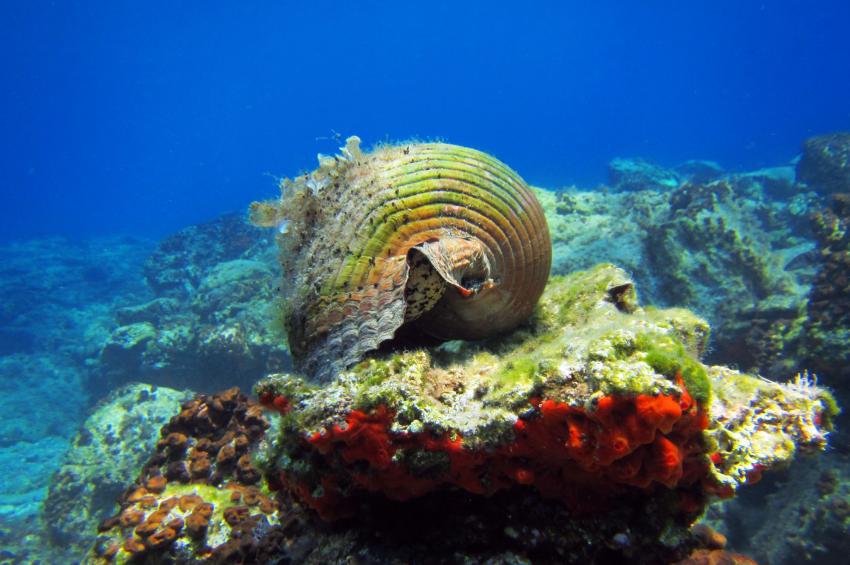Greece is located in southern Europe, and is bordered by the Aegean, Ionian, and the Mediterranean Seas. Until recently, Greece wasn’t really known for its scuba diving because most of dive sites were prohibited, although it is still restrictive for specialty dives like night dives and wreck dives. Here, divers can explore rich marine life, hundreds of discovered and undiscovered shipwrecks, beautiful underwater rock formations, caves, caverns, canyons, and walls.
Diving opportunities are everywhere, but Greece's most famous dive site is probably the HMHS Britannic (sister ship to the RMS Titanic), which lies at about 120m/393ft deep and was first discovered and explored by Jacques Cousteau in 1975. However, due to the depth of this dive, it’s for technical divers only. Some other popular dive sites in Greece are Avlaki at Halkidiki, Koundouros Reef at Kea Island, the Anna II Wreck at Mykonos, the Elephants Cave in Chania, and the Agios Marcos Shipwreck and Kalogrias Reef at Halkidiki. Greece offers not only good diving, but also has a unique beauty as well as historical, cultural, and archeological attractions
When To Go Diving in Greece
Diving in Greece is available throughout the year. The climate in Greece is mainly Mediterranean with sunny, hot, and dry summers and mild winters. The climate in northern Greece is completely different, with freezing winters and hot, humid summers. June to September are the warmest months here, with an average temperature of 27C/80F. Winter temperatures drop to 6C/43F. The water temperature averages 20C/24C from May to September and 16-23C/60-74F from October to April, depending on the site, sea, and island. The water visibility starts at 6m/20ft and can exceed 50m/160ft, depending on the area and time of year. Most sites are relatively free from current.
What to see
The diverse marine life in the waters of Greece includes sea urchins, starfish, crabs, lobsters, squid, and octopi. Lucky divers may have a chance to see turtles, seals, dolphins, tuna, swordfish, sunfish, and flying fish
